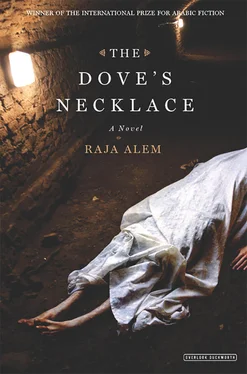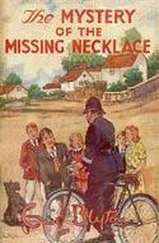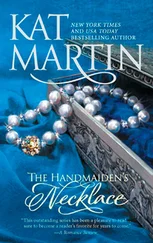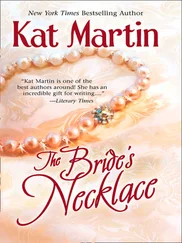“Let Aisha write herself into thin air! I’m not going anywhere near her.”
The expressions “cold” and “already dead” stuck in Nasser’s head. He hurried to the file containing all of Aisha’s emails addressed to an unknown German man, which they’d found on her computer in a drafts folder entitled “The One.” Nasser took out the first page and began to read:
FROM: Aisha
SUBJECT: Message 2
You said that you were twenty-four when you got a job at the hospital carrying corpses from the morgue out to their relatives. You had nightmares, you said, until one day the old-timer who worked there said to you, “Is a human body really so different from a plank of wood? Just imagine that’s what it is.”
When you touch me, do I feel like a plank?
During those three months of accompanying the dead, were you ever able to turn one of those planks into trembling softness at the mere touch of your hands? When did you acquire that skill?
Can you believe that we’re writing messages back and forth between a hospital in Germany and a backstreet in the Arabian Peninsula?
Is this simply another symptom of the disease that’s had me in its grips for the past year — am I just raving deliriously?
Why do we feel so small and lost when we lie alone like this in bed? Is this what the solitude of coffins is like?
If I close my eyes, I can hear the fat as it bubbles inside the folds of my stomach.
Six of us used to sleep in a space three meters squared.
They say there are microscopic creatures that can’t be seen by the naked eye, and can’t be wiped out by cleaning or sterilization; they hide in our blankets and beds waiting to eat our flesh. They can eat us alive. Can you bear that thought?
Away from you, I lie alone in my bed carrying the torsos of dead bodies back and forth through the operating theater in my head.
Have I told you? In Arabic, Aisha means “alive,” not “living.”
The tea tasted strange to Nasser, and all the sugar he’d added — four teaspoons — coagulated on his tongue at this woman’s talk about the body and flesh-eating mites. All his police instincts, indeed his entire body, reacted to this message: what sort of coldness was this that was being eaten by mites? Mites are attracted to decomposition, heat. Suddenly the air conditioner and the fan were no longer enough to cool the room. He continued reading:
The universe is swarming with messages sent back and forth. In the virtual world, borders have been shattered and people in every corner of the globe are engaged in an exhausting quest for love, desperate to exchange a laugh or share a little company …
My words mingle with throngs of other desperate voices searching for a way out.
I’m on the Internet because I want to learn how to talk to a man. Does that make me sound naive? A divorced girlfriend of mine once said to me, “How was I supposed to know what to do with men’s clothes? How was I supposed to know that you have to starch a man’s headscarf in a specific way to keep it sitting at just the right angle on his forehead like a nest? I grew up an orphan surrounded by a bunch of women. I’d never even looked at a man face-to-face. What was the big deal about this nest thing anyway? How was I supposed to know what temperature to wash a robe at to keep it soft? Men’s robes, like their bodies and minds, are toys I don’t know how to care for or keep looking shiny. I didn’t know that men were obsessed with cars and football and sexy dancers in music videos. I’m on the outside of that world.”
That day, I felt a sense of superiority toward the divorcée, because I knew no headdress was plotting my divorce. Ironing men’s robes was right up my alley — I had six brothers, whose robes were as smooth as paper and whose headdresses hung down as rigid as drainpipes, not even buckling when they knelt to pray.
But the other masculine languages, the language of actually living with a man, had passed me by. When the time comes that I have to interact with a man’s body, I freeze up. There’s a story from somewhere back in the mists of time about the little girl who’s born to a man obsessed with chastity. From the moment she was born, the man imprisoned his daughter in a world he’d built himself in the basement of his house, with not even a skylight to the outside, and he erased from that world every last trace of masculinity. He didn’t even let words that were grammatically masculine enter the space, so instead of sending her food on a masculine “plate” he sent it to her on a feminine “saucer.” He never fed his daughter lamb, but the meat of female cows. The girl didn’t sleep on a bed — which was masculine — but on a feminine chaise longue. He didn’t adorn her with masculine necklaces or earrings, but with feminine bracelets, and so on. He entrusted her to a wicked old lady to bring her up in that feminine environment. The world in which the young girl grew up wasn’t merely devoid of masculine elements; they’d never existed in the first place. It was an indestructible, impenetrable world of unadulterated femininity. Then one day, a pair of scissors somehow found their way into the basement and fell in the hands of the young girl. The masculinity of the object shocked her and she immediately hid them, aware of the danger they posed. Of course, she then used the scissors to dig a tunnel through the wall of the basement so she could look out upon the outside world. One day when she was contemplating the outside, she heard someone talking about the handsome prince Harj ibn Marj, who’d never been defeated in battle and whose hair was so long that it had to be pleated seventy times and piled up on the back of his saddle when he rode his horse. Needless to say, that single masculine instrument was all the girl needed to escape, and then to fight and vanquish Harj ibn Marj. An escape that we, the women of the Lane of Many Heads in the twentieth century, had failed to achieve. We were raised in similar subterranean worlds, and when the time came for us to be allowed out, our faces had to be effaced with black — an invisibility cloak that makes us a non-existence — so the masculine world would not notice us. We’ve been trained so that we’re blinded to masculinity, this castrated masculinity that’s lost its ability to extend any kind of salvation to us as it did in the story of Harj ibn Marj. The weird thing was that this regime of effacement was a sign of modernity in the Lane of Many Heads, for throughout the neighborhood’s history, right up until the early twentieth century, women’s faces had remained uncovered for all the world to see, for the sun to shine on.
On mornings when nothing can get me to open my eyes, I just have to imagine the taste of dates and then I can get out of bed. Throughout the history of the Hijaz, dates were idols; they were worshipped but they were also eaten without any feelings of guilt. With the utmost piety, in fact.
I’m in thrall to the date paste they make in Medina; it’s dark and it looks desiccated, but it melts in your mouth. Medinan dates transmit all the desires of a city that calls upon one to travel in pursuit of one’s faith — follow your faith no matter where it takes you — and that’s why they taste twice as sweet.
The date paste on your tongue is me: you have to chew it for the flavor to come out. The paintingsyou send me, with their vivid colors, soak my face in splashes of spring morning. My God, how is it that a few simple paragraphs can bring so much intimacy and joy?
Tell me, why do you insist we find our own private language? Does my Arabic not get through to you? Do I not understand your German? That leaves us with broken English. Thank God you can chalk up my incoherence to the language and not a limited intellect.
Читать дальше












